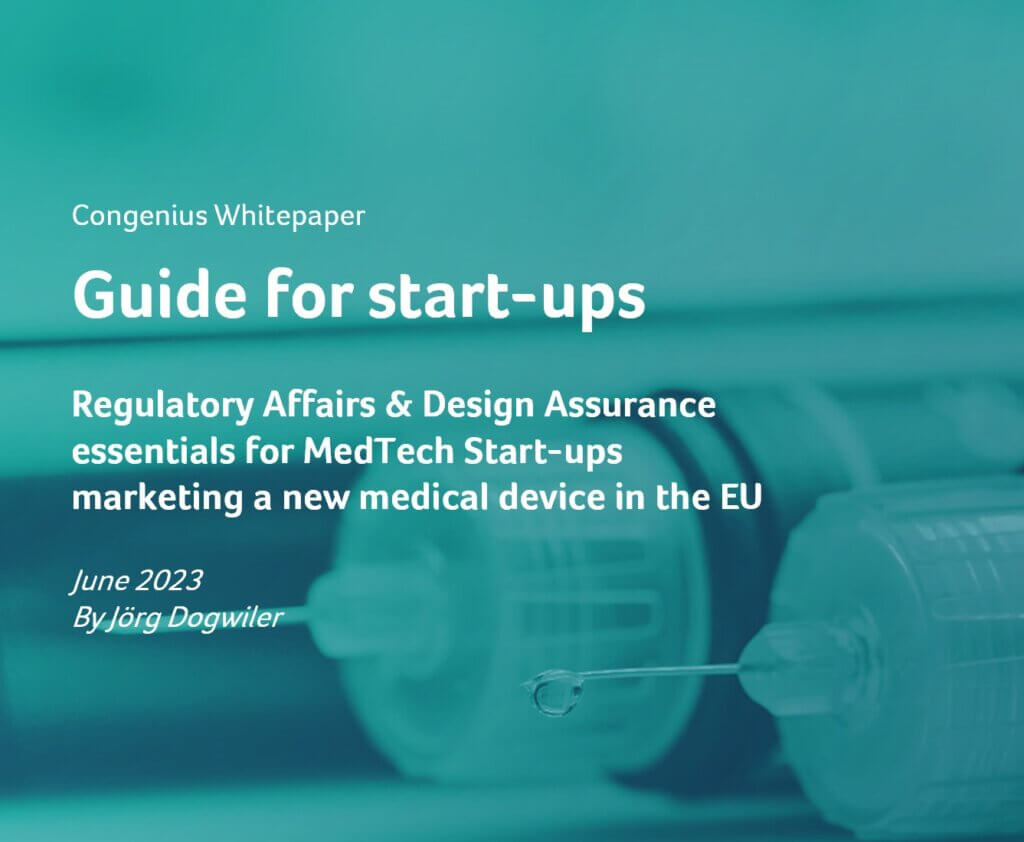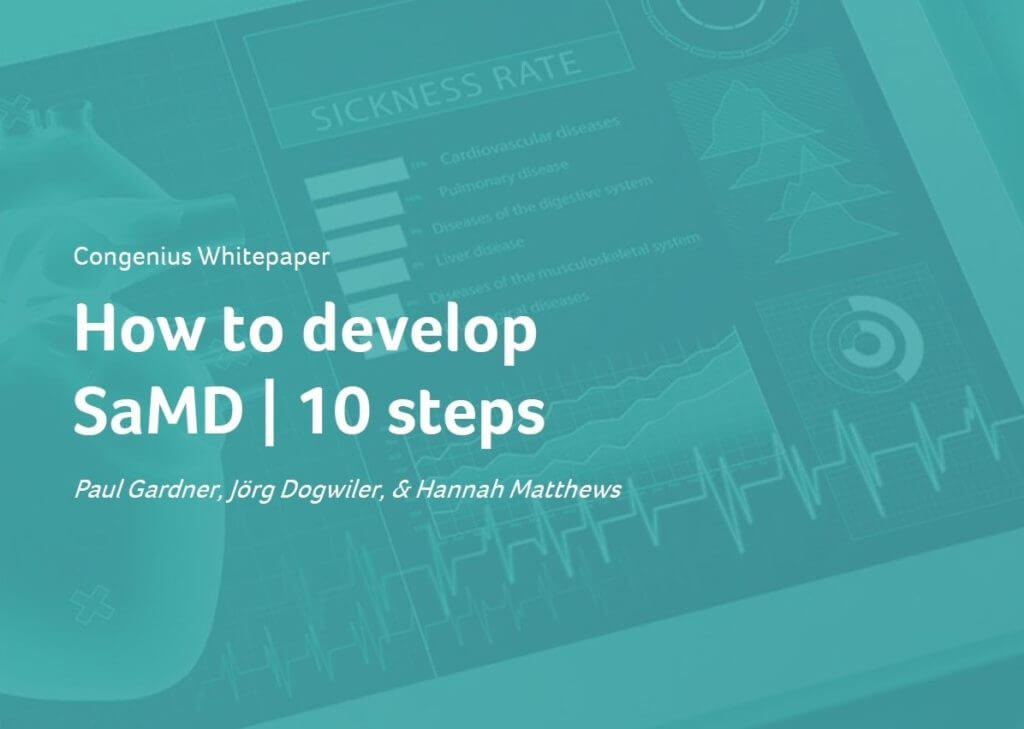The inception of a MedTech start-up stems from someone having a great idea for a new product that improves therapy or existing medical solutions. The need for a start-up’s product is evidenced by medical experts and a first market study, and, once the product appears to be technologically feasible, a business plan is developed, and first investors are found.
Researchers and engineers are hired. Technologies are further developed and combined. Experiments are conducted. Prototypes are developed and tested. And eventually the decision is made to move from research into final product development.
It is inevitable, that at some point in this journey the question arises: How do I register my medical product to gain market access?
In this topical article, our Head of Quality Dr Dirk Hüber shares what needs to be proven and how when registering your product, and outlines how introducing a QMS during your start-up’s pre-development phase can facilitate a successful path to market access.
What to prove when registering your product & how to prove it
To successfully register your product to gain market access, several elements need to be demonstrated. You shall need to prove:
- That the product fulfils the Intended Purpose and Intended Use
- That there is a clear benefit for the patient, i.e., the product is at least as effective for the intended therapy as existing products and therapies
- That the product is safe, and the risk connected with the use of the product is less than the clinical benefit for the patient
- That the product fulfils its requirements and specifications and can be manufactured consistently according to its specifications
- That the requirements and specifications of the product are reasonable, based on state of the art, and have been developed in a systematic way
As the last point above is often overlooked by start-up companies, it’s important to note that it is not sufficient to just prove that your product does what it is supposed to do, you also need to prove that the product’s function makes sense.
So how do you prove all of this?
Evidence for the elements above must be provided via records. Which records, and what they must contain, is stipulated by regulations. There are also certain expectations from regulatory authorities regarding how these records should be developed. One such expectation, is that these records are developed within a Quality Management System (QMS).
A QMS provides a systematic framework, in the form of processes, for how to establish the required records. The processes are interconnected, forming a complete landscape that describes the policies, business processes, and procedures necessary for an organisation to create and deliver its products to its customers. As such, a QMS helps start-ups to increase customer satisfaction through high product quality.
It is essential that this focus on processes begins during your start-up´s pre-development phase, i.e., with research. Granted, in a start-up, a focus on compliance early on is sometimes overlooked due to an unfamiliarity with the strict rules present in the MedTech and pharma field, but it is crucial to address this, as activities and results from research must be documented in a compliant way.
Our advice is to implement a QMS within your start-up early in the research (pre-development) phase, and get it certified.
What are the requirements for a QMS in a start-up?
A QMS for a start-up in an early phase looks quite different from a QMS in an established company. A QMS for a start-up has to be:
- Simple, and reduced to the essentials
- Straightforward enough to follow for those with little or no experience in the regulated world
- Lean enough to be carried out efficiently within very small infrastructures (including companies with as few as two or three employees), but still compliant and effective
- Scalable in such a way as to support a company´s requirements as it progresses and develops

How will your start-up benefit from introducing a QMS early?
By implementing and certifying a QMS in your start-up early in the research phase you will benefit from the following advantages:
A smooth introduction to a regulated environment
Since the formal requirements during research are only few, introducing a QMS early allows your team to be gently introduced to the regulated medical environment, rather than having to face a more abrupt change to adhere to a far more complex set of rules when done later. You will also benefit from the goodwill of your Notified Body, who are usually very lenient towards start-ups in early phases, allowing space to learn and develop.
Furthermore, as the QMS will be scaled-up as your company develops, your team will be able to gradually familiarise themselves with the regulated world.
The avoidance of costly mistakes
The early introduction of a QMS will help your team to take a systematic approach during the research (pre-development) phase, providing tools to help avoid mistakes and identify aberrations early on. When research results are not documented in a compliant way, they risk not being able to become utilised in product development, or at the least, if possible, have to be documented retrospectively. This can result in loss of time, resources, and money, which could place your start-up in an awkward situation. Failure to follow regulations in product development has, of course, even more severe consequences.
Peace of mind regarding compliance
In general, a QMS helps to coordinate activities, directing a start-up’s organisation to meet customer and regulatory requirements.
In a nutshell, an early-implemented QMS not only lays a fundamental foundation for your start-up, but also improves its effectiveness and efficiency on a continuous basis, contributing to the lasting success of your company.
At Congenius, we have developed a Standard QMS that is built for start-ups and adaptable to the specific needs of each individual company. We have implemented our QMS solution at many start-ups in a fast and cost-effective way and supported these companies in living their new QMS. In all cases, the QMS was successfully certified. Should you have a QMS-related challenge, our Quality team is ready and happy to help. Simply get in touch to start the conversation.





